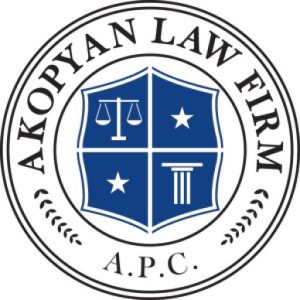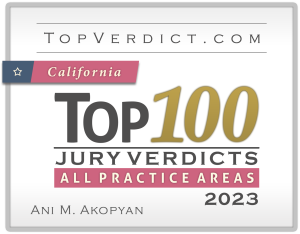Apple Valley Employment Attorneys
Our seasoned employment lawyers are prepared to enforce and protect the rights of Apple Valley residents.
About Apple Valley
 The town of Apple Valley is located in San Bernardino County. Apple Valley covers three square miles. It is home to roughly 75,000 residents. Apple Valley lies within zip code 92307 and 92308. Apple Valley, while officially becoming a town in 1988, boasts a rich history dating back much further. The region was once home to Serrano Indian camps along the Mojave River, even before the arrival of Father Francisco Garces in 1776, who established Spanish missions in California. In the late 1800s, the Paiute Indians also migrated to the area. The Mojave River Trail served as a route for trappers, gold prospectors, pack mules, and Mormon wagon trains, with over 13,000 people passing through between 1849 and 1859. In 1860, the first cabin was built by Silas Cox, and a road was cut the following year. The origins of Apple Valley’s name have several stories. Some attribute it to the abundance of apple orchards in the 1920s. Others claim it came from The Appleton Land Company operating in the early 1900s. Ursula Poates, one of the early settlers, reportedly quipped, “There were some apples being raised along the river in those early days, but not by the ton, so I just cut it down and called it Apple Valley!” By 1920, there were award-winning orchards producing tons of apples. Unfortunately, the orchards dwindled in the 1930s due to the Great Depression and the cost of irrigation. With its pleasant climate and ample land, various types of ranches thrived in the area. The dry desert air was marketed as a remedy for ailments, including tuberculosis and asthma. Some ranches provided solace for shell-shock victims of World War I, while others evolved into guest ranches. People flocked to Apple Valley to experience the Western lifestyle, enjoying activities like horseback riding and attending rodeos while escaping the hustle and bustle of the city. The modern founders of Apple Valley, Newton T. Bass and B.J. “Bud” Westlund, were partners in the oil and gas industry in Long Beach, CA. In 1946, they established the Apple Valley Ranchos Land Co. and promoted the area as both a destination resort and a quality residential community known as “The Golden Land of Apple Valley.” They built the Apple Valley Inn and Hilltop House and invited Hollywood celebrities to visit. Within a decade, Apple Valley had banks, churches, a school, a golf course, a hospital, and 180 businesses.
The town of Apple Valley is located in San Bernardino County. Apple Valley covers three square miles. It is home to roughly 75,000 residents. Apple Valley lies within zip code 92307 and 92308. Apple Valley, while officially becoming a town in 1988, boasts a rich history dating back much further. The region was once home to Serrano Indian camps along the Mojave River, even before the arrival of Father Francisco Garces in 1776, who established Spanish missions in California. In the late 1800s, the Paiute Indians also migrated to the area. The Mojave River Trail served as a route for trappers, gold prospectors, pack mules, and Mormon wagon trains, with over 13,000 people passing through between 1849 and 1859. In 1860, the first cabin was built by Silas Cox, and a road was cut the following year. The origins of Apple Valley’s name have several stories. Some attribute it to the abundance of apple orchards in the 1920s. Others claim it came from The Appleton Land Company operating in the early 1900s. Ursula Poates, one of the early settlers, reportedly quipped, “There were some apples being raised along the river in those early days, but not by the ton, so I just cut it down and called it Apple Valley!” By 1920, there were award-winning orchards producing tons of apples. Unfortunately, the orchards dwindled in the 1930s due to the Great Depression and the cost of irrigation. With its pleasant climate and ample land, various types of ranches thrived in the area. The dry desert air was marketed as a remedy for ailments, including tuberculosis and asthma. Some ranches provided solace for shell-shock victims of World War I, while others evolved into guest ranches. People flocked to Apple Valley to experience the Western lifestyle, enjoying activities like horseback riding and attending rodeos while escaping the hustle and bustle of the city. The modern founders of Apple Valley, Newton T. Bass and B.J. “Bud” Westlund, were partners in the oil and gas industry in Long Beach, CA. In 1946, they established the Apple Valley Ranchos Land Co. and promoted the area as both a destination resort and a quality residential community known as “The Golden Land of Apple Valley.” They built the Apple Valley Inn and Hilltop House and invited Hollywood celebrities to visit. Within a decade, Apple Valley had banks, churches, a school, a golf course, a hospital, and 180 businesses.
How Apple Valley Residents Can Find the Best Employment Lawyer
There are many ways that Apple Valley residents can look for an attorney. One option is to ask friends and family. Another option is to search online for “wrongful termination attorney Apple Valley.” Another option still is to call a billboard lawyer. Regardless of the approach you take, the most important thing to do is confirm that the potential attorney has the experience, talent, and track record to deliver best results. With offices in Los Angeles, Bakersfield, Oxnard, Temecula, Rancho Cucamonga, Costa Mesa, Culver City, and San Diego the Akopyan Law Firm A.P.C. is just minutes away from Apple Valley. Our employment lawyers stand ready to provide world-class services and top-notch representation to the residents of Apple Valley.
We Can Help Apple Valley Residents With:
Featured Article:
Common Patterns in Constructive Termination Disputes in Southern California
📌 Key Takeaways A resignation may be treated as a termination if working conditions became so intolerable that a reasonable person would feel compelled to quit. Medical Restrictions Ignored: Employers who repeatedly assign tasks that conflict with documented medical limitations may create legally intolerable conditions. Timing Suggests Retaliation: Sudden schedule changes, reduced hours, or increased discipline shortly after disability disclosure or protected leave may indicate discriminatory intent. Interactive Process Failures: Employers who refuse to consider available light-duty tasks or alternative assignments may violate disability accommodation obligations. Pressure Tactics Undermine Voluntariness: Pre-drafted resignation documents presented under threat of termination may not constitute truly voluntary departures. Documentation Shifts Signal Problems: Neutral performance reviews that suddenly turn negative after accommodation requests may suggest the employer is building a termination record. Coerced resignations under disability-related pressure may carry legal weight beyond the paperwork. Southern California workers who resigned after repeated medical restriction violations, post-leave scheduling changes, or disability-related discipline will recognize actionable patterns here, preparing them for the detailed legal framework that follows. ~ ~ ~ ~ ~ ~ ~ ~ ~ ~ ~ ~ ~ ~ ~ ~ ~ ~ If you are a worker in Southern California who resigned after an injury, disability, or serious medical condition, you may question whether the resignation was truly voluntary. In some cases, a resignation may be treated as a termination if the worker can prove constructive discharge based on intolerable working conditions. In California, constructive discharge generally refers to a resignation that may be treated as a termination when working conditions become so intolerable that a reasonable person would feel compelled to resign, and the worker actually resigns because of those conditions. Patterns Involving Workers with Disabilities Who Are Assigned Tasks That Conflict with Medical Restrictions The examples below are hypothetical and illustrative and are not intended to predict the outcome of any case. Disregarding Medical Restrictions After an Injury or Diagnosis A common allegation arises when an employer acknowledges medical restrictions (for example, limits on heavy lifting, climbing, prolonged standing, or overhead work) but supervisors continue assigning tasks that conflict with those restrictions. If the worker is repeatedly placed in assignments that risk reinjury or discipline for following restrictions, the worker may argue the employer created intolerable conditions. Refusal to Consider Light Duty or Alternative Tasks Another pattern appears when alternative tasks exist, but the employer does not meaningfully consider them as potential reasonable accommodations. For example, a worker may be capable of scanning, packing, inventory tasks, dispatch support, or other less strenuous duties, yet the employer keeps the worker on the most physically demanding line. A failure to engage in a timely, good-faith interactive process or a refusal to consider reasonable accommodations may have legal significance. California law, including the Fair Employment and Housing Act (FEHA), and federal law, including the Americans with Disabilities Act (ADA), may protect workers with disabilities from discrimination and retaliation and may require employers to engage in a timely, good-faith interactive process to explore reasonable accommodations. Patterns... Read more









Millions of Dollars Recovered For Our Clients
Check Out Our Case Results



